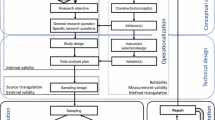Abstract
The paper addresses the integration of ethics into professional education related to the disciplines responsible for the conception and creation of the artificial (artefactual or technology). The ontological-epistemological paradigm of those disciplines is understood within the frame of the sciences of the artificial as established by Herbert Simon (1969). According to that paradigm, those sciences include disciplines not only related to the production of artefacts (technology), such as engineering, architecture, industrial design, etc, but also disciplines related to devised courses of action aimed at changing existing situations into preferred ones, like medicine, law, education, etc. They are centered on intentional action and at their core is the activity of design, which is their common foundation and attitude, or their common culture. The science of design becomes the broader foundational discipline for any professions engaged in the intentional transformation of the world.
The main distinction between design disciplines and scientific ones rests on the object-project dichotomy. Indeed, contrary to Science that sees the world as an object to be observed, Design sees the world as a project and acts upon the world through projects, which are grounded in intentions, ends, and values. Design disciplines are meant to transform the world, or part of it, and are teleological. Being so, they are embodied in an act that is ethical and their ontology-epistemology must be addressed also through practical reason to resituate all professional disciplines according to their involved nature.
The paper introduces theoretical, methodological, and ethical elements to establish a model that integrates ethics into the education of the professional disciplines, design-based disciplines, responsible for the creation of the artificial, artefactual or technological, world. The model is articulated around the notions of ethical engagement and responsibility through the act of design understood as action with intention situated in a project, common in all professional disciplines.
Similar content being viewed by others
References
Simon, H. (1996) The Sciences of the Artificial, MIT Press, Cambridge MA.
Findeli, A. (1998) “Will Design Ever Become a Science?”, in: Strandman, P., ed. No Guru, No Method. Discussion on Art and Design, UIAH, Helsinki, Finland.
Lee, Keekok (2000) “The Taj Mahal and the spider’s web”, in Fox, Warwick (ed), Ethics and the Built Environment, Routledge, New York.
Le Moigne, J.L. (1995) Les épistémologies constructivistes, PUF, Paris.
Findeli, A. (1994) “Ethics, Aesthetics, and Design. Educational Issues”, Design Issues X, 2, Summer, p. 49–68.
Findeli, A. (1997) “Une boussole pour s’orienter dans l’espace épistémologique, éthique et esthétique du projet de conception”, in Boudon, P., Deshayes, P., ed. Les sciences de la conception sont-elles énoncable et enseignables?, Dossier MCX XII, Aix-en-Provence, AEMCX/GRASCE.
Sartre, J.-P. (1996) L’Existentialisme est un humanisme, Gallimard, Paris.
General Readings
Appelbaum, D., Lawton, S. Eds. Ethics and the Professions, Englewood Cliffs, NJ, Prentice-Hall, c. 1990.
Aristotle. Nicomachean Ethics. Ware, Wordsworth, 1996.
Bayles, M. D. Professional Ethics, 2nd ed. Belmont, CA, Wadsworth Publishing, 1989.
Callahan, J. C., ed. Ethical Issues in Professional Life. New York, Oxford University Press, 1988.
Findeli, A. “Peut-on sortir de la pensée technique? Le cas de l’aménagement et des sciences de la conception”, in Manger, R., ed. L’autre de la technique. Montreal, Fides, 1999.
Findeli, A. “Will Design Ever Become a Science?”, in Strandman, P., ed. No. Guru, No Method. Discussion on Art and Design. Helsinki, UIAH, 1998.
Findeli, A. “Educating Culturally Responsible Product Manufacturers, Designers, and Consumers”, in Williamson, J., ed. Design and Cultural Responsibility. Cranbrook, Design Michigan, 1997.
Findeli, A. “Theoretical, Methodological, and Ethical Foundations for a Renewal of Design Education and Research”, in Boekraad, H., Smiers, J., eds. The New Academy. Breda, Academy St Joost, 1997.
Findeli, A. “Une boussole pour s’orienter dans l’espace épistémologique, éthique et esthétique du projet de conception”, in Boudon, P., Deshayes, P., ed. Les sciences de la conception sont-elles énoncable et enseignables?, Dossier MCX XII, Aix-en-Provence, AEMCX/GRASCE, 1997.
Findeli, A. “Éthique, technique et design: éléments de problématique et de méthodologie”, in Prost, R. ed. Concevoir, inventer, créer, Paris, L’Harmattan, 1995.
Findeli, A., ed., Prométhée éclairé. Éthique, technique et responsabilité professionnelle en design. Montréal, Informel, 1993.
Findeli, A. “Ethics, Aesthetics, and Design. Educational Issues”, Design Issues, X, 2, Summer 94, p. 49–68.
Findeli, A. “Architecture et techno-éthique: contribution a une éthique de l’architecture”, in Pelletier, L., Perez-Gomez, A., eds. Architecture, Ethics, and Technology. Montreal, McGill-Queens University Press, 1994.
Fox, W., ed. Ethics and the Built Environment. New York, Routledge, 2000.
Hadot, P. Qu’est-ce que la philosophie antique?, Paris, Gallimard, 1995.
Hadot, P. “Forms of Life and Forms of Discourse in Ancient Philosophy”, Critical Inquiry, 16, Spring 1990, p. 483–505.
Koehn, D. The Ground of Professional Ethics. New York, Routledge, 1994.
Krippendorf, K. “Redesigning Design: An Invitation to a Responsible Future”, in Design. Pleasure or Responsibility?, Helsinki, UIAH, 1995, p. 138–62.
Kultgreen, J. Ethics and Professionalism. Philadelphia, University of Pennsylvania Press, 1988.
Le Moigne, J. L. Les épistémologies constructivistes, Paris, PUF, 1995.
Le Moigne, J. L. “Recherche Scientifique en Architecture”. La Recherche en architecture: un Bilan International. Paris, Parenthese, 1986.
Pelletier, L., Perez-Gomez, A., eds. Architecture, Ethics, and Technology. Montreal, McGill-Queens University Press, 1994.
Prost, R. La formation professionnelle en question dans les domaines du design, de l’architecture et de l’urbanisme, Cambridge, Mass., typescript, April 1991, 30 p.
Racine, L. Ethique et ingénierie. Montreal, McGraw-Hill, 1991.
Rittel, H. “Some Principles for the Design of an Education System for Design”, Design Methods and Theories, XX, 1, 1986, p. 359–75.
Sartre, J.-P. L’Existentialisme est un humanisme. Paris, Gallimard, 1996.
Schon, D. The Reflective Practitioner: How Professionals Think in Action. New York, 1983.
Simon, H. The Sciences of the Artificial. Cambridge, MIT Press, 1996.
Wasserman, B., Sullivan, P., Palermo, G. Ethics and the Practice of Architecture. Wiley, 2000.
Whitbeck, C. (1998) Ethics in Engineering Practice and Research. Cambridge University Press.
Williamson, J. (1997) ed. Design and Cultural Responsibility. Cranbrook, Design Michigan, 1997.
Author information
Authors and Affiliations
Corresponding author
Rights and permissions
About this article
Cite this article
d’Anjou, P. Theoretical and methodological elements for integrating ethics as a foundation into the education of professional and design disciplines. SCI ENG ETHICS 10, 211–218 (2004). https://doi.org/10.1007/s11948-004-0016-6
Issue Date:
DOI: https://doi.org/10.1007/s11948-004-0016-6




